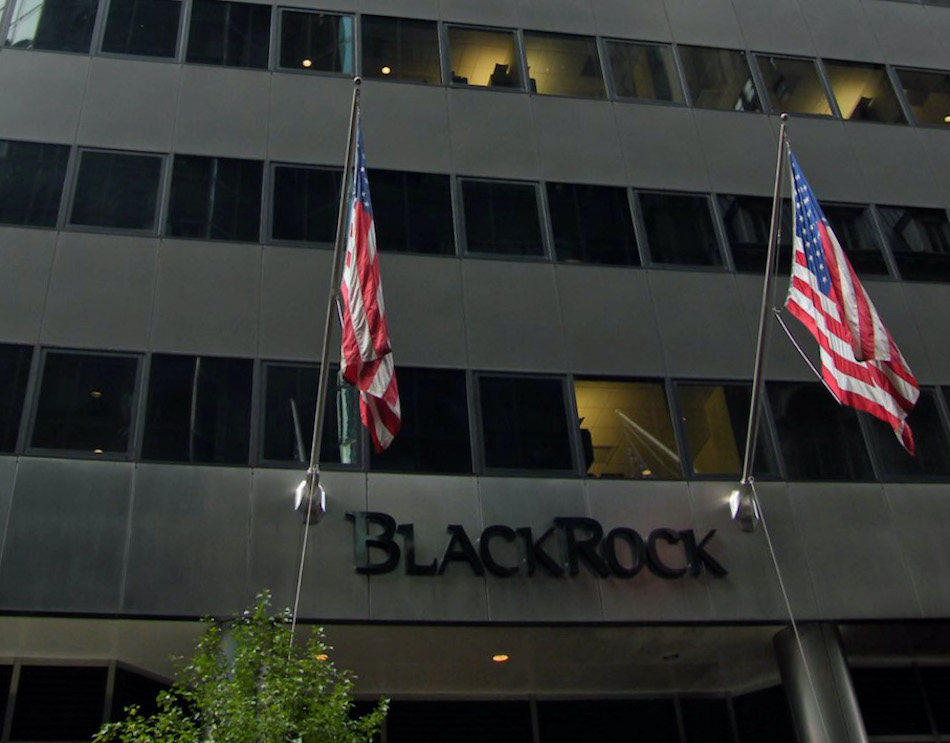ImpactAlpha, Jan. 14 – Sustainability, and in particular climate risk, is disrupting asset management.
“In the near future, and sooner than most anticipate, there will be a significant reallocation of capital,” BlackRock’s Larry Fink writes in his annual letter to CEOs.
Fink put climate at the center of changes in the way it will manage the $7 trillion in assets in its care. The reforms reflect the pressure BlackRock and other major asset managers face from large institutional asset owners – and in particular the world’s largest, Japan’s $1.7 trillion Government Pension Investment Fund – which increasingly see global warming as a systemic risk to financial markets worldwide (see, “Universal owners push asset managers to push corporations toward sustainability in 2020”).
In its actively managed portfolios, BlackRock committed by mid-year to eliminate holdings in companies that generate more than a quarter of their revenues from thermal coal production.
But the bulk of the assets held by BlackRock and other major asset managers, such as Vanguard and State Street, are primarily invested through passive index funds that track the broader market.
Such indexing has enabled passive managers to claim they can’t take more dramatic action, such as divestment, when portfolio companies resist pressure to assess, disclose and mitigate their climate risks. But as Fink’s letter makes clear, passive ownership is passive no more.
“We are on the edge of a fundamental reshaping of finance,” he writes.
Change the index, change the market
The most consequential change outlined by Fink is a move from traditional market cap-weighted indexes, which by default reward the largest companies, to indexes weighted on the basis of environmental, social and governance, or ESG, factors, as clients such as GPIF have demanded.
In a second letter to clients, Fink said BlackRock will offer sustainable versions of its flagship model portfolios. “Over time, we expect these sustainability-focused models to become the flagships themselves.” As The New York Times’ Andrew Ross Sorkin suggested, in five to 10 years, “there will be a different version of the S&P 500, there will be a different version of Dow Jones.”
Putting ‘teeth’ into stewardship
BlackRock has been under fire from protesters over its votes against many climate-related shareholder resolutions. But the real impetus for Fink’s tougher stance may have been institutional clients that expect BlackRock to more aggressively “steward” their assets from risk.
Fink put companies on notice they will be held to account if they don’t adopt reporting frameworks such as the Sustainability Accounting Standards Board and the Task Force on Climate-Related Financial Disclosures, pronto.
“We will be increasingly disposed to vote against management and board directors when companies are not making sufficient progress on sustainability-related disclosures and the business practices and plans underlying them,” Fink wrote.
As You Sow’s Andrew Behar welcomed Fink’s embrace of the model of corporate governance shareholder advocates have used for decades. “But now with over $6 trillion in assets, the model has teeth!”
Peer pressure
Fink’s letter raises the stakes for other financial institutions as well. “Today’s news could mark the start of a real turning point on Wall Street and lead other major players, including Vanguard, State Street and Fidelity, to follow suit,” said Environment Defense Fund’s Fred Krupp.
Activist and writer Bill McKibben, leader of 350.org, told ImpactAlpha that Fink’s letter is “a BFD” and said, “I think Vanguard and State Street have to match or better, and soon. It seems like ‘worse for the planet than BlackRock’ is not a great slogan.”
BlackRock, along with JPMorgan Chase and Liberty Mutual, are top targets of McKibben’s new campaign, Stop the Money Pipeline. BlackRock’s move, McKibben said, “Certainly makes all the people gathering to take on Chase more confident of ultimate success!”
Time for leadership
In an interview on CNBC’s Squawk Box, Fink said this was his hardest letter to write yet. “We don’t have a Federal Reserve to stabilize the world like in the five or six financial crises that occurred during my 40 years in finance,” he said. “This is bigger. It requires more planning. It requires more public-private connections to solve these problems… I do believe many of these problems could be solved, but the actions have to begin now.”











